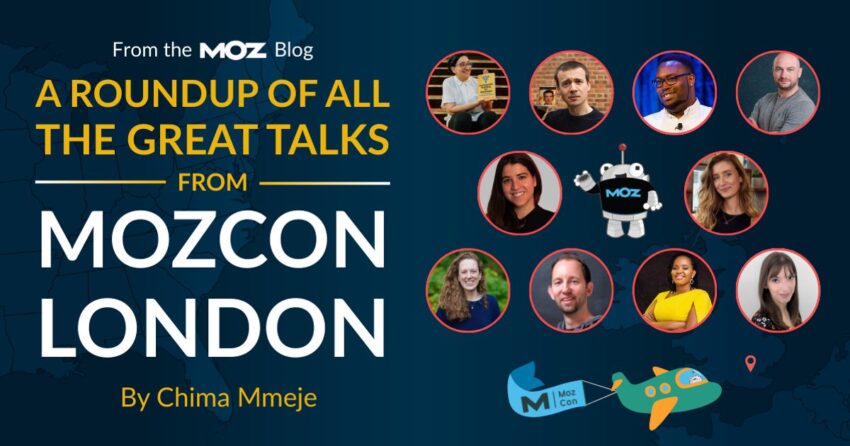TL;DR Summary of Key Takeaways from MozCon London: AI Search, SEO Metrics & Brand Strategy
Optimixed’s Overview: Navigating the Future of SEO with AI, Brand Authority, and Data-Driven Content Strategies
Transforming Keyword Research for AI and User Intent
Dr. Pete highlighted the need to move beyond traditional head-term keyword models toward clustering keywords by meaning and focusing on conversational search patterns. This approach aligns content with the growing prevalence of natural language queries, ensuring SEO strategies remain relevant in an AI-dominated search landscape.
Audience-Centric Keyword Strategy and Cross-Team Collaboration
- Rebecca’s insights stressed the importance of deeply understanding audience personas using GA4 data and psychographics before conducting keyword research.
- She advocated for leveraging long-tail, life-moment, and product-specific keywords to diversify strategy and fill subcategory gaps.
- Successful SEO requires collaboration across content, PR, social media, and UX teams to unify brand and conversion goals, driving significant revenue growth.
Measuring SEO Impact Beyond Last-Click Attribution
Helen introduced a CFO-friendly, three-step content value framework encompassing ROI, assisted conversions, and comprehensive page classification. This method demands cross-departmental collaboration with finance and development to accurately assess SEO’s true business impact.
Luke further demonstrated how GA4’s attribution paths and custom audiences can reveal SEO’s influence throughout all funnel stages, showing much higher SEO-attributed revenue than traditional last-click metrics.
Adapting to AI Overviews and Brand Authority in Search Results
- Tom’s research revealed that AI Overviews (AIOs) now dominate various verticals, with brand authority serving as a stronger predictor of AIO presence than domain authority.
- Businesses must decide to either resist AIO changes by targeting featureless queries or embrace SEO as a brand marketing channel focused on impressions and AI presence.
- Measurement models must evolve beyond rankings to include brand mentions and AI response depth.
Building Trust and Community for Long-Term SEO Success
Areej emphasized that authentic communities thrive on trust, not marketing tactics, recommending a launch-grow-scale framework supported by cross-team resources to maintain engagement and value over time.
Optimizing for AI Search and Local SEO
Charlie outlined how reviews, citations, and digital PR are crucial for AI search visibility, with local SEO gaining importance due to AI surfacing map results and business listings in chat responses.
Innovative Content Strategies and Brand Signal Optimization
- New content should focus on creating affinity to build habits, direct traffic, and conversions, even without backlinks, using personalized UX and multimodal repurposing.
- Lidia detailed how consistent brand signals, schema markup, and repurposing content across platforms enhance brand presence in both traditional and AI-driven search environments.
Leveraging AI for Custom SEO Tools and Automation
Andy demonstrated how no-code AI tools enable marketers to build SEO utilities quickly using APIs and Streamlit for deployment. He highlighted best practices for prompt writing, secret management, and debugging to maximize tool effectiveness.
Looking Ahead
The MozCon series continues in New York this November, promising further deep dives into AI search tactics and SEO innovation with leading industry experts.
